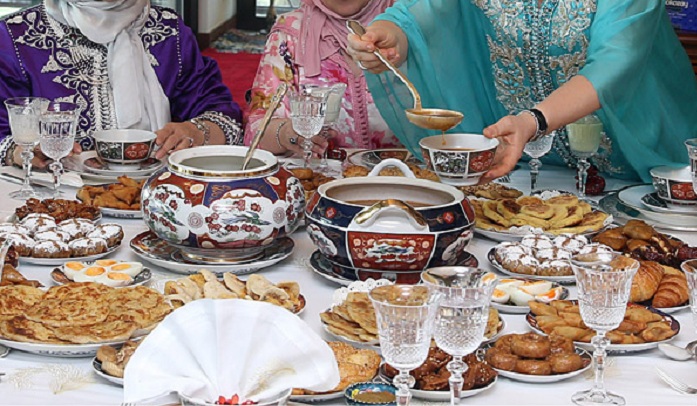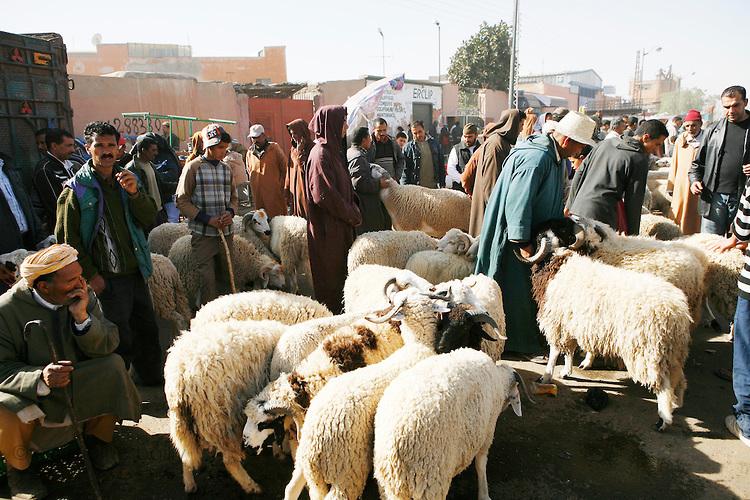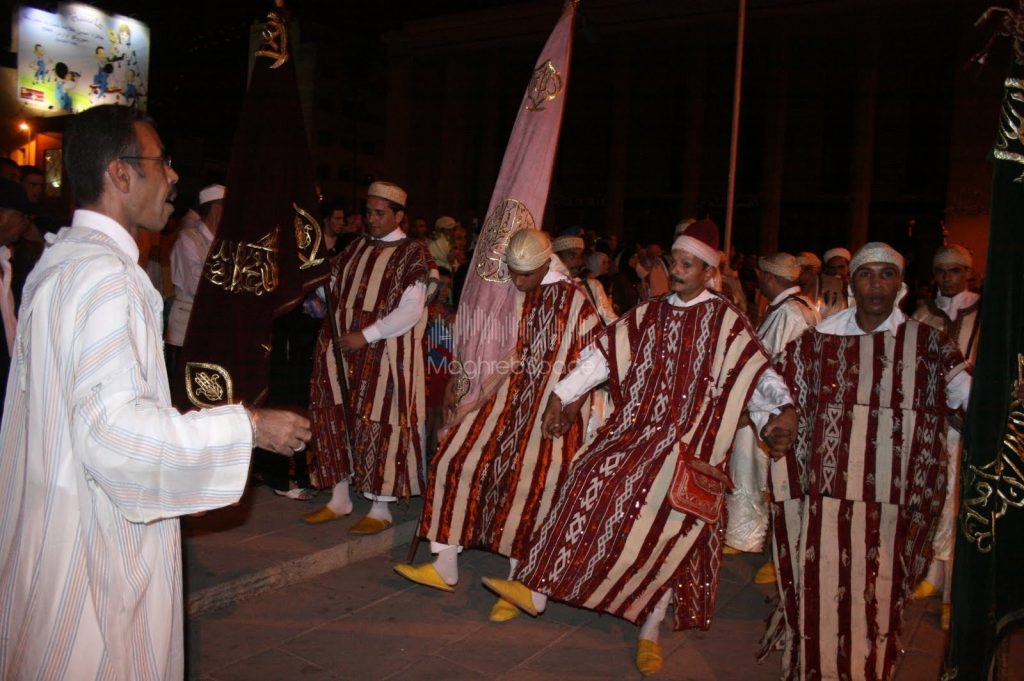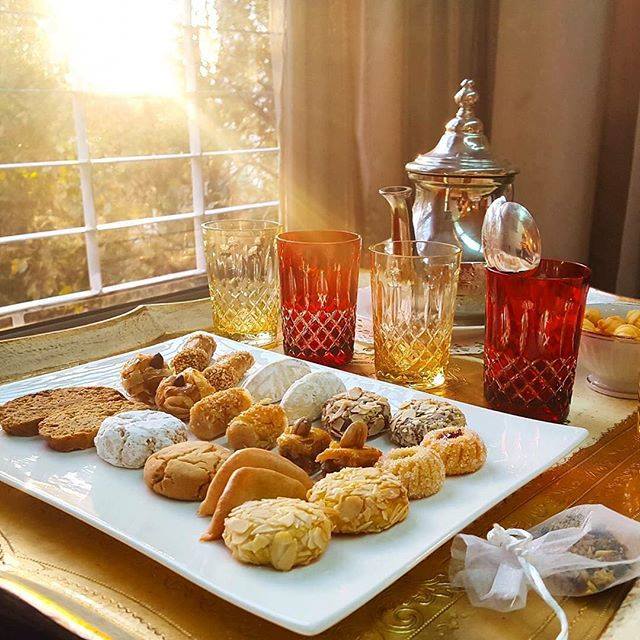
Nearly all of the population of Morocco is Muslim, and as a result, Islamic holidays are very important days of observance and celebration throughout the country.
Morocco, with its rich Islamic heritage, hosts a variety of significant Islamic holidays such as Ramadan, Eid al-Fitr, and Eid al-Adha.
In most cases, workers have the day off, and everyone goes home to spend time with their family.
The Islamic lunar calendar is twelve days shorter than the Gregorian calendar, so the holidays fall on different days each year.
Make sure to look them up if you are traveling to Morocco or another Muslim country.
Table of Contents
Ramadan
One of the two most important holidays is Ramadan, celebrated throughout the entire ninth month of the twelve-month Islamic lunar calendar.
During this month, adult Muslims fast from sunrise to sunset, refraining from eating, drinking, and smoking.

It commemorates the time that the Quran was revealed to the prophet Mohammed, and Muslims are encouraged to practice self-control and moderation and think of those in need.
Many people perform extra prayers and dedicate time to reading the Quran every day during this month.
There is no food or water throughout the day, but each evening brings a feast. After the siren or call to prayer sounds to signal the end of the fast for the day, there is a surreal stillness in the streets as everyone stops to eat.
The traditional breaking of the fast meal includes dates, harira – a light tomato soup, sweet fried pastries, hard boiled eggs, and small savory items.
Most families eat a dinner later in the night as well. Then, an hour or so before sunrise, fasters eat an early breakfast known as sohour to give them energy throughout the day.
Not everyone has to fast – children, pregnant and breastfeeding women, travelers, those who are weak or sick, and menstruating women do not have to fast.
The fast days can be made up at a later time, or, for those who can’t fast, fulfilled by providing a meal for a poor person.
Non-Muslims are also not expected to fast, but they are expected to refrain from eating or drinking in public.
Ramadan is not usually a good time to travel in Morocco as a tourist.
Many cafés and restaurants are closed during the day, as are some businesses. Public transportation may also be extremely crowded around Aid al-Seghir, as many people travel home to visit their families.
If you are going to be in Morocco during Ramadan, it’s advisable to stay somewhere where you can cook your own meals during the day.
Be prepared to avoid eating in public, even if you are hungry. It’s also especially important to be modest and respectful during this holy month.
If you can manage these things, then be prepared for exciting and energetic evenings filled with lots of good food as the city comes back to life at the end of each day.
At the end of the month, there is a two-day festival known as Eid al-Seghir also referred to as Eid El Fitr, to celebrate the end of the month.
Eid al-Fitr: A Festive Culmination of Ramadan
Eid al-Fitr is a highly anticipated Islamic holiday that marks the end of the holy month of Ramadan. In Morocco, the celebration of Eid al-Fitr is filled with joy, unity, and deep spiritual significance.
As the crescent moon is sighted, signaling the conclusion of Ramadan, families across the country come together to partake in festivities and express gratitude for completing a month of fasting and devotion.
Colorful decorations adorn homes and streets, while the aroma of delicious traditional dishes fills the air.
The day begins with communal prayers at the mosque, followed by visits to family and friends, where warm embraces and heartfelt greetings are exchanged.
Children receive gifts and sweets, and it is customary to share meals with those in need, ensuring that everyone can partake in the joyous spirit of Eid.
The celebration of Eid al-Fitr in Morocco is a beautiful testament to the unity and compassion that Ramadan fosters within the community, leaving lasting memories and a renewed sense of faith for all who participate.
Eid al-Kabir
The other very important festival is Eid el-Kabir. It marks the beginning of the new year, as well as the anniversary of the event described in the Quran in which God ordered Abraham to sacrifice his son Ismail, but provided a ram instead.
Every household across Morocco sacrifices a sheep and eats it at a family meal. For some poor families, this is the only time of the year that they eat meat.
Like Ramadan, Eid al-Kabir also refereed to as Eid al Adha is celebrated with family, so many businesses are closed and people travel home for several days.
As a result, it can be difficult to travel during this time since museums, banks, restaurants, and even many hotels close for a few days.
If you are going to be in Morocco, make sure that you have accommodation arranged ahead of time.

Avoid train and bus travel on the two days before and after Aid al-Kabir at all costs.
It’s a good idea to pack some snacks in case you have trouble finding food, although in larger cities there is usually something open.
Also, be prepared to come across sheep being slaughtered in the street in older neighborhoods and smaller towns on the morning of Aid al-Kabir.
Be sure to be respectful and let families celebrate in peace.
Eid Al Mouloud
In addition to Eid al-Seghir and Eid al-Kabir, several other holidays are celebrated throughout the year.
Muharram is the first day of the first month of the Islamic lunar calendar, and commemorates the migration that the prophet Mohammed made to the city of Medina.
Moroccans also celebrate Mohammed’s birthday, known as Mouloud or Mawlid Nabawi. It occurs on the 12th day of the third month and is celebrated with different things in different countries, including parades, festivities, decoration, and feasts.
In Morocco, it is usually celebrated with special sermons at the mosques and family dinners, during which religious poems are recited.
Additionally, streets and homes are adorned with lights and decorations to honor the birth of the Prophet

Another important holiday is Ashura, which occurs thirty days after Aid al-Kabir, on the 10th day of the first month.
On this day, Muslims remember the martyrdom of the Prophet Mohammed’s grandson Hussein ibn Ali, who died in battle.
This is especially true in Morocco, where the day is focused on fun and games for children.
There is music, presents festivities, and of course, lots of sweets. Many adults also fast during the day.

Many Moroccans, especially those of Berber heritage, also celebrate moussems, or festivals in honor of Muslim saints.
One of the largest ones is held in Meknes and includes music, singing, dancing, circus-like entertainment, and huge market tents.
Calendar of Islamic Holidays in Morocco 2023-2024:
- Mawlid al-Nabi: September 27th, 2023
- Ramadan: March 11th, 2024
- Eid al-Fitr: April 10th, 2024
- Eid al-Adha: June 16th, 2024
**Note: Please keep in mind that these dates are based on the Islamic calendar, which is a lunar calendar. The actual dates of these holidays may change depending on the moon’s sighting.
While holidays in Moroccan can be a challenging time to travel, they can also be an opportunity to see beautiful, special, and very intense parts of Moroccan culture, traditions and holidays.
With good planning, you can experience a bit of this aspect of the country.